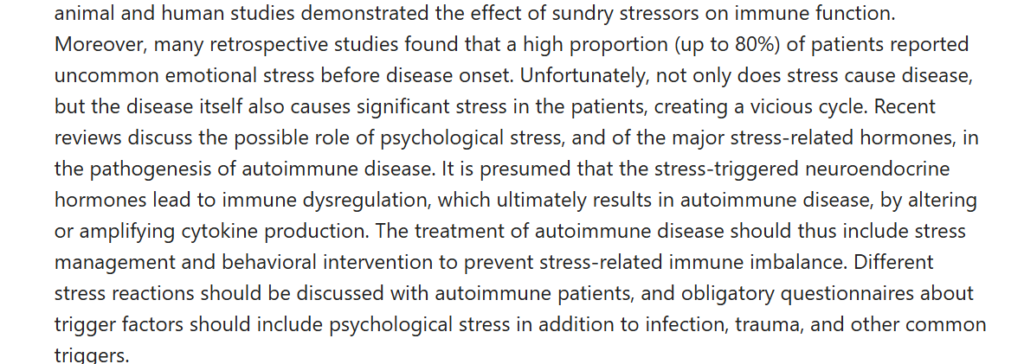Is Chronic Stress Giving You Cortisol Face? 6 Burning Questions Answered
Cortisol, also known as the stress hormone, is much more than a marker of stress. It plays a vital role in our daily functioning, helping regulate energy by breaking down carbohydrates, fats, and proteins. It ensures our body is prepared for a fight or flight response during perceived danger, and it also aids in forming memories, managing blood pressure, and controlling inflammation. In moderation, cortisol is your body’s natural ally.
But what happens when you are chronically stressed? When your cortisol levels are perpetually high?
Let’s take a look into how this hormone influences various aspects of your health.
Today, the term cortisol face is trending all over social media. We answer six questions about cortisol and the steps you can take to regain control.
Q1. What is Cortisol Face and How Common Is It?
One visible sign of elevated cortisol is Cortisol Face, characterized by puffiness and a fuller appearance.
Cortisol Face refers to visible facial changes caused by elevated levels of cortisol, often appearing as puffiness or a rounder, fuller face, commonly referred to as ‘moon face.’ This occurs due to cortisol’s effect on fluid retention and fat redistribution. Sustained high cortisol levels, triggered by chronic stress or underlying conditions like Cushing’s syndrome, disrupt the body’s hormonal balance, leading to these noticeable changes.
While not everyone with high cortisol experiences these symptoms, they are more prevalent among those dealing with chronic stress, prolonged anxiety, or disrupted sleep. According to research published in the Journal of Clinical Endocrinology & Metabolism, elevated cortisol is associated with increased fat deposition, particularly in the facial area.
Telltale Signs of Cortisol Face:
- Facial puffiness, particularly around the cheeks and jawline.
- A fuller, rounder appearance due to fat redistribution.
- Thinner skin, making veins more visible.
- Frequent acne or breakouts linked to hormonal imbalances.
- Swelling in other parts of the face, giving a bloated look.
Recognizing these signs early can prompt lifestyle adjustments to reduce stress and support hormonal balance.
Q2. How Can We Identify Cortisol Face? Are There Any Signs and Symptoms?
The most common signs of Cortisol Face include facial puffiness or a rounder appearance, especially around the cheeks and jawline. Thinner skin, often with visible veins, and frequent breakouts or acne are also indicative. These changes typically occur alongside broader symptoms of high cortisol, such as abdominal fat gain, sugar cravings, and poor sleep quality.
Physiologically, high cortisol promotes water retention and alters fat distribution, which explains the puffiness and round appearance. According to studies published in Nature Reviews Endocrinology, cortisol influences subcutaneous fat storage, particularly in the facial region, while also thinning the skin by reducing collagen production.

These symptoms can often coexist with other stress-related markers like fatigue, anxiety, and digestive issues. Recognizing these signs early can serve as a cue to address lifestyle factors, reduce stress, and adopt interventions that lower cortisol levels, improving both appearance and overall health.
Q3. Is Cortisol Always Harmful?
Cortisol often gets a poor reputation but it’s vital for numerous bodily functions. Known as the stress hormone, it plays a key role in managing energy, regulating metabolism, and aiding memory formation. For instance, cortisol’s spike in the morning helps you wake up and feel alert, while its decline at night promotes restful sleep.
Friend or Foe?
Like any good thing, cortisol becomes problematic when it remains chronically elevated due to prolonged stress, poor sleep, or lifestyle factors. Persistent high cortisol can lead to inflammation, fat storage (especially around the abdomen), and disruptions in hormones like insulin, testosterone, and thyroxine. For example, cortisol’s interaction with insulin can cause sugar cravings and contribute to weight gain, while suppressing testosterone and thyroid hormones can affect metabolism and energy.
Do you find yourself craving sugary or fatty foods when you’re stressed? That’s cortisol, increasing your appetite to store energy. It’s helpful in a short-term crisis but leads to fat gain, inflammation, and metabolic issues when it becomes chronic, especially around the belly. And have you noticed how hard it is to shake off a cold or how you feel drained even after a full night’s sleep? That’s cortisol, again, dampening your immune response and messing with your sleep patterns.
Q4. What Happens if Cortisol Is Unchecked or Dysregulated?
Chronic stress and uncontrolled anxiety can keep the body locked in a sympathetic nervous system state, leading to prolonged cortisol spikes. Over time, this can contribute to several issues.
Impact on Mental Health
Chronic high cortisol levels have been linked to various psychiatric disorders. Elevated cortisol can contribute to the development and exacerbation of conditions such as depression, anxiety, and psychosis. Studies have shown that individuals with heightened cortisol levels are at an increased risk of experiencing these mental health challenges.
 Source: Dziurkowska, E., & Wesolowski, M. (2021). Cortisol as a Biomarker of Mental Disorder Severity. Journal of Clinical Medicine, 10(21), 5204. https://doi.org/10.3390/jcm10215204
Source: Dziurkowska, E., & Wesolowski, M. (2021). Cortisol as a Biomarker of Mental Disorder Severity. Journal of Clinical Medicine, 10(21), 5204. https://doi.org/10.3390/jcm10215204
Sleep Disturbances
Cortisol influences our natural sleep-wake cycles. Disruptions in cortisol levels can lead to sleep disturbances, including insomnia and altered sleep architecture. This disruption can result in poor sleep quality and contribute to conditions like delirium.

Source: Hackett, R. A., Dal, Z., & Steptoe, A. (2020). The relationship between sleep problems and cortisol in people with type 2 diabetes. Psychoneuroendocrinology, 117, 104688. https://doi.org/10.1016/j.psyneuen.2020.104688
Physical Health Implications
Elevated cortisol levels can suppress the immune system, increasing susceptibility to infections and slowing down the healing process. Additionally, high cortisol can lead to visceral fat build-up, particularly around the abdomen, and contribute to the development of metabolic disorders such as Type 2 diabetes and cardiovascular diseases.
Cognitive Effects
Prolonged exposure to high cortisol levels can impair cognitive functions, including memory and learning. This is due to cortisol’s impact on brain regions like the hippocampus, which is crucial for memory formation and retrieval.
Other effects on your health include:
- Chronic inflammation and Free Radicals: Fueling oxidative stress that damages cells.
- Skin Issues: Acne, thinning skin, and the puffiness often called ‘cortisol face.’
- Digestive Disturbances: Disrupted gut health due to decreased blood flow and enzyme production.
- Autoimmune Conditions: Studies by PubMed indicate that heightened inflammation can misfire the immune system, leading to autoimmune responses.
- Delayed Healing: Cortisol inhibits processes essential for recovery and repair.

Source: Ljudmila Stojanovich, Dragomir Marisavljevich, Stress as a trigger of autoimmune disease, PMID: 18190880 DOI: 10.1016/j.autrev.2007.11.007
When cortisol levels remain unchecked, they can derail the body’s delicate balance, leading to widespread dysfunction. Maintaining a balance is key. In short bursts, cortisol helps us respond to challenges, but unchecked levels can wreak havoc on physical and mental health, underscoring the importance of stress management.
Q5. Are There Other Signs of Unchecked Cortisol Levels?
Yes, unchecked cortisol levels can manifest through a range of symptoms, signaling disruptions in the body’s delicate balance. While cortisol is vital in moderation, prolonged elevation can impact multiple systems. Let’s explore some telltale signs and why they occur:
Chronic Fatigue:
Cortisol helps the body respond to stress with an energy boost, but sustained high levels can overstimulate the adrenal glands. Over time, this leads to adrenal exhaustion, commonly referred to as ’adrenal fatigue.’ Instead of feeling energized, individuals may experience persistent tiredness and lethargy, even after sufficient rest. This occurs because the body remains in a prolonged state of alert, draining its energy reserves.
Mood Swings and Anxiety:
Cortisol affects brain regions responsible for regulating emotions, including the hippocampus and prefrontal cortex. Chronic elevation can disrupt the balance of key neurotransmitters like serotonin and dopamine, leading to irritability, heightened anxiety, and mood instability. Over time, this constant state of stress makes it harder to regulate emotions or cope with new challenges. This may also affect your day-to-day life or workplace productivity.

Digestive Issues and Gut Health:
During stress, cortisol shifts energy away from digestion to prioritize survival functions. Prolonged exposure can compromise gut integrity, leading to conditions like ‘leaky gut,’ where the intestinal lining becomes more permeable. This can trigger systemic inflammation and exacerbate issues such as bloating, constipation, or IBS. Cortisol also interferes with appetite-regulating hormones like leptin and ghrelin, increasing hunger and cravings for high-calorie, sugary foods, further disrupting digestion and metabolism.

Increased Infections:
High cortisol levels suppress the immune system by reducing cytokine production, which is vital for initiating immune responses. While helpful in short bursts to control inflammation, prolonged suppression leaves the body more vulnerable to infections and slows healing. Frequent colds, flu, and delayed recovery from illnesses or wounds are common in individuals with chronic stress.
Muscle Weakness:
Cortisol promotes the breakdown of muscle protein into amino acids, which are then converted into glucose for energy. While this is beneficial in acute stress scenarios, chronic elevation can lead to muscle loss and atrophy. Over time, reduced muscle mass slows metabolism, making it harder to maintain strength and energy. This can contribute to a cycle of physical weakness and fatigue, diminishing overall vitality.
These signs indicate that the body is struggling to maintain balance. Persistent high cortisol levels act as a disruptor, affecting everything from energy to immunity and emotional health. Recognizing these symptoms is the first step toward restoring harmony and well-being.
Q5. How Can We Manage and Regulate Cortisol Levels with Lifestyle Changes?
Addressing high cortisol requires a well-rounded, holistic approach rooted in lifestyle choices that nurture balance and well-being. The six pillars of lifestyle—deep cellular nutrition, adequate exercise, quality sleep, emotional wellness, spiritual connection, and breath—serve as the foundation for managing stress and promoting harmony in the body.
Deep Cellular Nutrition
What you eat significantly impacts how your body responds to stress. Nutrient-dense, whole foods help calm inflammation and support cellular health. Omega-3 fatty acids from sources like fatty fish, walnuts, and flaxseeds reduce inflammation, while antioxidant-rich fruits and vegetables aid detoxification. Magnesium, found in leafy greens, nuts, and seeds, can calm the nervous system and regulate cortisol levels.

Focusing on gut health is equally vital, as the gut-brain axis plays a critical role in stress management. A stressed gut contributes to elevated cortisol, so include fermented foods and prebiotic-rich options to keep your microbiome healthy.
Adequate Exercise
Moderate physical activity is a powerful tool for reducing cortisol and enhancing mood through the release of endorphins. However, balance is key—intense workouts can increase cortisol levels for those already stressed. Opt for activities like walking, swimming, yoga, or Pilates to manage stress without overloading your body.
For individuals with elevated cortisol, ending workouts with calming practices like Shavasana can amplify the relaxation response and support recovery.
Quality Sleep
Sleep acts as the body’s natural reset button, helping to regulate cortisol and rejuvenate the mind and body. Establishing a consistent sleep schedule—even for five nights a week—can profoundly impact hormone balance.
If sleep is a challenge, focus on creating a bedtime routine. Reduce screen time, practice deep breathing or meditation, and ensure your environment is cool, quiet, and dark. These habits including micro rest and naps can enhance sleep quality and bring cortisol levels back into balance.
Emotional Wellness
Emotions and cortisol are closely linked, with unmanaged stress often leading to hormonal imbalances. Incorporating practices like mindfulness, journaling, or spending time in nature can help shift the body from a ‘fight or flight’ state to a more relaxed “rest and digest” mode.
Even small steps, like practicing gratitude or engaging in meaningful conversations, can lower cortisol and bring emotional balance.
Spiritual Connection
Connecting to something greater than yourself fosters resilience and inner peace, both of which counteract the stress response. Practices such as meditation, prayer, or spending time in nature encourage reflection and reduce cortisol levels.

Whether it’s watching a sunrise, walking barefoot on grass, or simply practicing silence, these moments of connection can provide a sense of calm and purpose that buffers against stress.
Breathwork
Breath is a direct gateway to the nervous system, with the power to shift the body into a state of relaxation. Diaphragmatic breathing, also known as belly breathing, activates the parasympathetic nervous system, reducing cortisol and promoting healing.
Incorporate simple techniques like alternate nostril breathing or box breathing to calm the mind and restore balance. Practices like pranayama and yoga enhance this effect, making breathwork a cornerstone of stress management.
Managing cortisol is about creating harmony within the body. By integrating these six pillars of lifestyle into your daily routine, you can reduce stress, improve resilience, and support your overall well-being. Start small—swap processed snacks for nutrient-rich options, take a 10-minute walk, or practice deep breathing before bed. These small, consistent steps can lead to profound transformations for your health and happiness.
An extract of this interview appeared on the Mid-day Platform.
Ready to make your health your priority?
Start your journey with one positive action today.
Check Out Our Emotional Wellness & Homeopathy Program.
Looking for personalized advice? Our experts are ready to help you thrive.
Reach Out to Team Luke’s Integrative Health Coaches!
Book a one-on-one with our team: 1800 102 0253 or write to us at consults@lukecoutinho.com.
Disclaimer: Always make an informed choice. Keep your healthcare provider in the loop before trying anything new, especially if you are going through a medical condition or are on medications.
|
From a pimple to cancer, our You Care Wellness Program helps you find a way Talk to our integrative team of experts today 18001020253 |










Leave a Reply